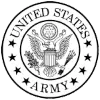Microsoft Power BI Certifications in 2024
As of 2024, Microsoft offers several certifications related to Power BI, which fall under the broader Microsoft Power Platform and data analytics domains. These certifications focus on different aspects of Power BI, such as data visualization, data modeling, and integrating Power BI with other platforms. Here are the main certifications available:
1. PL-300: Microsoft Power BI Data Analyst
- Certification Name: Microsoft Certified: Power BI Data Analyst Associate
- Target Audience: This certification is ideal for professionals who manage data with Power BI, including data analysts and business intelligence (BI) professionals. It focuses on data cleaning, modeling, visualizing, and deploying Power BI reports and dashboards.
- Skills Measured:
- Prepare data for analysis (data transformation, cleaning, and loading data into Power BI).
- Model data (create relationships, hierarchies, and calculations).
- Visualize data (create dashboards, reports, and interactive visuals).
- Deploy and maintain deliverables (publish and manage reports, and work with Power BI Service).
2. PL-900: Microsoft Power Platform Fundamentals
- Certification Name: Microsoft Certified: Power Platform Fundamentals
- Target Audience: This certification is for beginners and covers Power BI as part of the Microsoft Power Platform. It introduces the fundamentals of Power BI alongside Power Apps, Power Automate, and Power Virtual Agents.
- Skills Measured:
- Describe the business value of Power BI and the other Power Platform components.
- Understand the basics of creating Power BI reports and visualizations.
3. DA-100 (Retired)
This was the older version of the PL-300: Power BI Data Analyst certification and was retired. If you come across references to DA-100, it�s the same as the new PL-300 exam, which reflects updated content.
Additional Certifications that Include Power BI
- PL-600: Microsoft Power Platform Solution Architect Expert
- Focuses on designing and implementing Power Platform solutions, including Power BI integrations.
- This is an expert-level certification and is more suitable for solution architects or advanced Power Platform users.
- AI-102: Microsoft Azure AI Engineer Associate
- Although not specifically focused on Power BI, this certification can include Power BI in the context of AI-driven analytics and reporting solutions.
Certification Pathways
- Power BI Data Analyst: Starting with the PL-900 (Power Platform Fundamentals) is a great choice for beginners before advancing to the PL-300 certification.
- Solution Architect Path: Those with a broader focus on Microsoft Power Platform solutions can consider certifications like the PL-600.
These certifications can help you build expertise in Power BI, whether you're aiming to work as a data analyst, business intelligence specialist, or Power Platform architect.
Jobs that Use Microsoft Power BI
1. Data Analyst
Role: Analyze data to provide actionable insights, create reports, and dashboards.
Power BI Use: Data analysts use Power BI to visualize data and generate reports, helping businesses make informed decisions.
2. Business Intelligence (BI) Analyst
Role: Develop and maintain BI solutions, analyze business data, and improve decision-making processes.
Power BI Use: BI analysts use Power BI to create dashboards and reports that help organizations track key performance indicators (KPIs) and other business metrics.
3. Data Scientist
Role: Use data modeling, statistical analysis, and machine learning to analyze complex datasets and predict outcomes.
Power BI Use: Data scientists often use Power BI to present complex data insights in an understandable and interactive format.
4. Business Analyst
Role: Gather business requirements, analyze data, and provide recommendations to improve processes.
Power BI Use: Business analysts utilize Power BI to create reports and dashboards for stakeholders, helping to visualize and understand data trends.
5. Financial Analyst
Role: Analyze financial data, create financial models, and forecast business performance.
Power BI Use: Financial analysts often use Power BI to create financial dashboards and reports that show performance metrics, revenue, and other financial data.
6. Operations Analyst
Role: Analyze operational data to improve efficiency, productivity, and profitability.
Power BI Use: Power BI helps operations analysts create visualizations that track and optimize operational performance metrics.
7. Marketing Analyst
Role: Analyze market trends, customer data, and marketing performance metrics.
Power BI Use: Marketing analysts use Power BI to generate dashboards that show campaign performance, customer segmentation, and ROI.
8. IT Systems Analyst
Role: Manage and analyze IT systems performance, ensure efficiency and scalability.
Power BI Use: IT systems analysts use Power BI for reporting on system performance, tracking issues, and analyzing trends in IT infrastructure.
9. Project Manager
Role: Plan, execute, and monitor projects.
Power BI Use: Project managers use Power BI to track project progress, timelines, budgets, and resources in real-time.
10. Supply Chain Analyst
Role: Analyze supply chain data to optimize processes and reduce costs.
Power BI Use: Power BI is used to visualize data on supplier performance, inventory levels, and demand forecasting.
11. HR Analyst
Role: Analyze HR data to improve hiring, employee retention, and performance management.
Power BI Use: HR analysts use Power BI to create dashboards on employee performance, attrition rates, and recruitment data.
12. Retail Analyst
Role: Analyze sales, customer behavior, and product performance in retail settings.
Power BI Use: Retail analysts use Power BI to visualize sales trends, customer demographics, and inventory performance.
13. Healthcare Analyst
Role: Analyze healthcare data for improving patient outcomes and operational efficiency.
Power BI Use: Healthcare analysts use Power BI to visualize patient data, treatment effectiveness, and resource utilization in healthcare settings.
14. Consultant
Role: Provide expert advice to organizations on improving their business processes, strategies, and operations.
Power BI Use: Consultants use Power BI to create customized reports and dashboards to help clients visualize data and make informed decisions.
Industries That Commonly Use Power BI:
- Finance and Banking
- Healthcare
- Retail
- Manufacturing
- Telecommunications
- Consulting Firms
- Government
- Education











